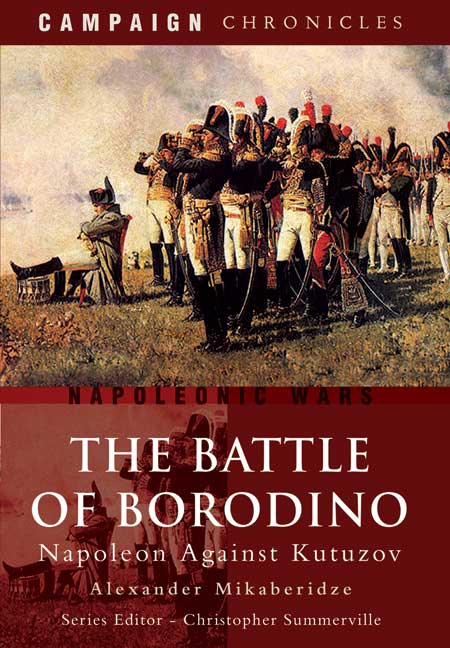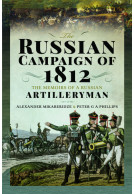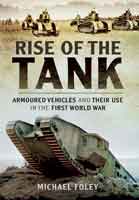The Battle of Borodino (ePub)
Napoleon Against Kutuzov
Imprint: Pen & Sword Military
Series: Campaign Chronicles
File Size: 7.8 MB (.epub)
Pages: 304
Illustrations: 40
ISBN: 9781848849709
Published: 15th November 2010
On 7 September 1812 at Borodino, 75 miles west of Moscow, the armies of the Russian and French empires clashed in one of the climactic battles of the Napoleonic Wars. This horrific - and controversial - contest has fascinated historians ever since. The survival of the Russian army after Borodino was a key factor in Napoleon's eventual defeat and the utter destruction of the French army of 1812. In this thought-provoking new study, Napoleonic historian Alexander Mikaberidze reconsiders the 1812 campaign and retells the terrible story of the Borodino battle as it was seen from the Russian point of view. His original and painstakingly researched investigation of this critical episode in Napoleon's invasion of Russia provides the reader with a fresh perspective on the battle and a broader understanding of the underlying reasons for the eventual Russian triumph.
This book as just receive second prize by the Literary Committee of the International Napoleonic Society. A total of twelve distinguished works were carefully evaluated and Dr. Mikaberidze’s volume has met the rigorous criteria established by the Committee. The quality of the publication, especially in the area of research, originality, style and analysis, represents a significant contribution to Napoleonic Studies.
BRILLIANT NEW PERSPECTIVE ON BORODINO
Alexander Mikaberidze is one of the most important young Napoleonic scholars in the US, and this book is just another reason why that is the case. There have been a number of studies in English of the Battle of Borodino, fought between Napoleon's Grande Armèe and a Russian army led by General Kutuzov. That battle, fought on 7 September 1812 about 75 miles west of Moscow, captures the imagination regardless of which side you would have been on. Both the French and the Russians consider it a victory, and each side can make a decent argument (though to be technical, it was a French victory).
Mikaberidze does an outstanding job of telling the story. A native of the Republic of Georgia and holding a PhD from the storied Institute on Napoleon and the French Revolution at the Florida State University, Mikaberidze brings a writing style that reflects not only excellent English but fluency in several other languages (at the very least, French, Georgian and, most importantly here, Russian). He writes in a way that will be interesting to scholars and the 'just interested' alike. His writing is augmented by some outstanding graphics. And he tells the story not just from the somewhat more traditional French perspective, but also from the Russian perspective. From my experience at two international conferences held at the battlefield, I can assure you that the Russians have a very different perspective on things than the French! :-)
What makes this book especially important, however, is the incredible breadth of sources used to produce it. Whether you are a scholar wanting verification of any new information or idea, or a general reader who rarely checks the references, you want a book to be based on outstanding research. Well, as my Australian friends would say, 'no worries here, mate.' Mikaberidze's list of sources is amazing. I counted 71 primary Russian sources and probably twice that many Russian secondary sources. These are not English translations, but rather the originals, often from Russian archival sources, and in many cases never used by western scholars until now. Mikaberidze uses an equally impressive set of English, French, German and Polish sources.
Again, the reader of this review should not be put off by my discussion of the sources. One can read this book without looking at a single footnote and still learn a great deal about this battle, including the leadup and aftermath. This book gives readers at any level everything they could possibly want--and more. It belongs in anyone's Napoleonic library.
J. David Markham
Historian/Author
www.NapoleonicHistory.com
The author had access to many Russian primary sources. This allows him to paint a detailed and balanced picture of the events.
VaeVictis, September/October 2017
On 7th September 1812 in what was to be one of the largest battles of the Napoleonic War, the French and Russian armies met at Borodino, some 75 miles west of Moscow. The action was a key factor in Napoleon’s eventual defeat in Russia and the ultimate destruction of his army. Here the author reconsiders the 1812 campaign and relates the story of the battle from a Russian point of view. His research provides a fresh perspective on Borodino and offers a broader understanding of the underlying reasons for the eventual Russian triumph. First published in 2007, this paperback edition now offers another opportunity to purchase this interesting account. There are 10 maps, eight diagrams and numerous monochrome illustrations included in the book, along with orders of battle, a glossary, notes and sources, select bibliography and an index.
Stuart Asquith, author
This book has everythink you'd expect from the best of the 'Campaign Chronicle' series and one written by a man who is one of the leading 'young bloods' of Napoleonic history, Alex Mikaberidze. This is an invaluable source and a good read.
Avon Napoleonic Fellowship
This is a superb examination of a crucial battle, clearly written, readable but detailed and backed by very high quality research.
historyofwar.org - July 2011
Alexander Mikaberidze paints the picture of the development of the relationship between Napoleon and Tsar Alexander from the time of its honeymoon at the 1807 Treaty of Tilsit, through its deterioration to the inevitable, horribly messy divorce, in 1812. The chief culprit for this estrangement was Napoleon’s Continental System, whose avowed aim was the commercial aggrandisement of France at the expense of the economies of all other nations of Europe. This did indeed bring Russia close to the brink of ruin, leading to Alexander’s opening of his harbours to vital and lucrative trade with England and thus his abandonment of Napoleon’s system. Napoleon could not allow this challenge to his power go unpunished, or it would have made his impotence clear for all to see and flout in similar manner. Thus the stage was set for the historic showdown.
Napoleon Series Reviews - April 2011
The author covers the preparations for the invasion of Russia and the strategic groupings of the opposing armies at the start of the invasion. For the first time, there is included a wealth of Russian eye-witness accounts of the confused state of the Russian defensive thinking, the intrigue, plotting, xenophobia and back-biting, which was the everyday menu of fare in the higher echelons of Alexander’s military command. A forward defence or the more flexible approach of a withdrawal, deep into a deserted Russia? The debate is well documented. Clearly shown is the immense strain placed on the Russian generals by the use of the latter tactic, supported again by many more Russian accounts, seen for the first time in English.
The actions at Schewardino and the main battle of Borodino are similarly fleshed out with personal accounts from all nations involved, giving some impression of the intensity of the bloody action on those days. It is tempting to think how the Duke of Wellington would have handled the defence of that stretch of terrain; no doubt the defenders’ casualties would have been far, far fewer and those of the attackers’ much higher.
The change of management style between Barclay de Tolley (calm, disciplined, rational) and Kutusov (cunning, devious, political to the fingertips, meddling in the established command and control mechanisms, with his personal interests well to the fore) is well demonstrated. The story of the fall of the Rajewsky battery is covered in detail, finally clarifying just which cavalry regiments actually were involved.
A new aspect of this great event is an analysis of the telling and re-telling of Russian historians’ versions of the battle during the Soviet era. Included are 12 maps, 12 diagrams, two highly-detailed orders of battle, numerous statistical analyses of the opposing forces, an extensive glossary and an index, as well as scores of black-and white portraits and battle scenes, all packed in to this— the ultimate work on this important battle. All the maps are clear, relevant and well laid out. Reading this extensive work is not for the faint-hearted, but it is very well worth it.
About Dr Alexander Mikaberidze
Alexander Mikaberidze is Professor of History and the Ruth Herring Noel Endowed Chair at Louisiana State University-Shreveport. He is an internationally acclaimed historian of the Napoleonic Wars, and the author and editor of two dozen books, including The Napoleonic Wars: A Global History (Oxford, 2020) and a trilogy on Napoleon’s invasion of Russia.



























